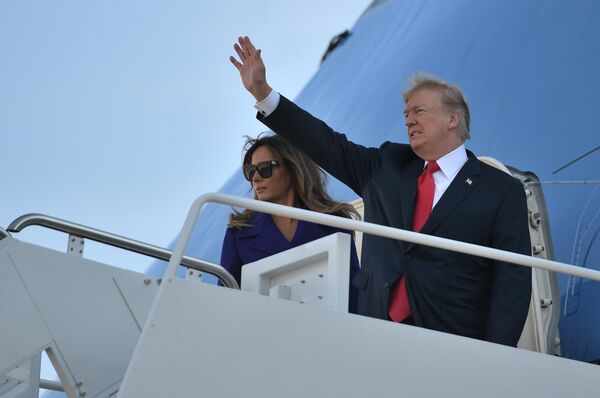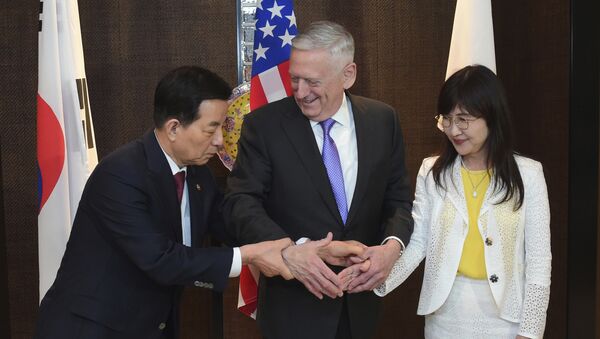The South Korean leader acknowledged the rising threat from the country's northern neighbor and welcomed military cooperation with Japan and the US.
"South Korea-US military cooperation as well as Japan has become important, but the cooperation is aimed at countering North Korea's nuclear and missile provocations," South Korean news agency Yonhap quoted the country's President as saying in an interview with Singapore's Channel NewsAsia at his office on Friday.
Moon Jae-in, however, seemed to rule out the setup of a new military union between the three states.
"I don't think it is appropriate to develop the cooperation to the level of a [trilateral] military alliance," he hurried to add.
The comments of the South Korean leader come as US President Trump embarks on his 11-day trip to Asia, the longest tour of the region by a US president in 25 years, which will include stopovers in Japan, South Korea, China, Vietnam and the Philippines.

Earlier this year, the US and Japan announced that they are stepping up their defense cooperation aimed at strengthening their allied capability to deal with the threat of a nuclear-armed North Korea.
However, the South Korean President warned Tokyo against using "a nuclear-armed North Korea as an excuse for its military expansion," which "would not be appropriate for ASEAN nations as well."
The South Korean President also "vowed to step up diplomatic efforts with China to peacefully resolve the North Korean problems through dialogue" while honoring relations with the US. He also expressed hope that Donald Trump's visit to Seoul will "ease military tension on the Korean Peninsula and provide a breakthrough in inter-Korean relations."
READ MORE: S Korea Calls on Japan to Be Careful in Making Comments on Comfort Women
Modern South Korean-Japanese relations have always been tempered with the memories of early 20th-century Japanese colonial rule. Under the annexation treaty of 1910, the last sovereign Korean emperor handed power over his country to the Japanese emperor "completely and forever," making the nation a colony of Japan. This rule ended with the conclusion of World War II in 1945.
While the Japanese maintain that, in the words of The Japan Times, "35 years of colonial rule improved Korea’s infrastructure, education, agriculture, other industries and economic institutions," many Koreans remain reproachful of Tokyo. Relations between South Korea and Japan were only established in 1965.


